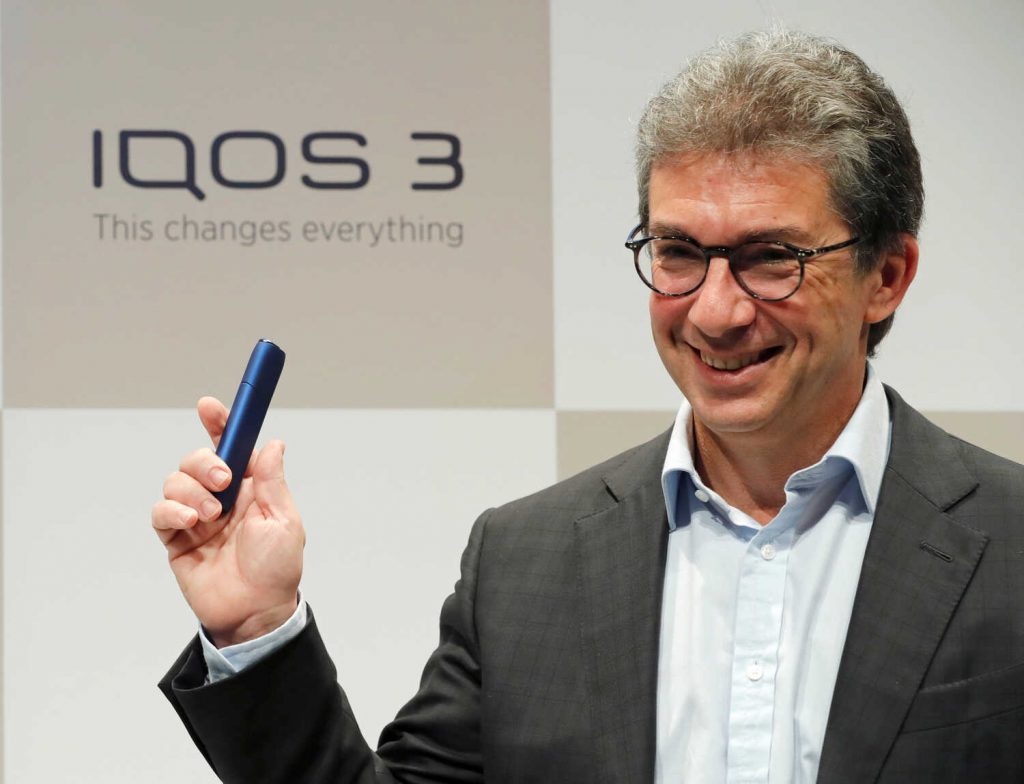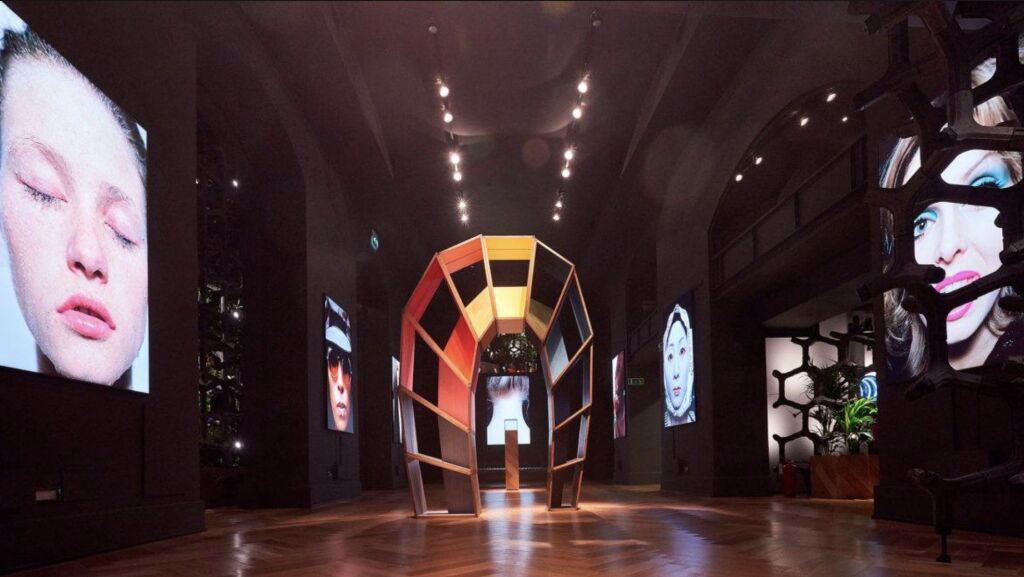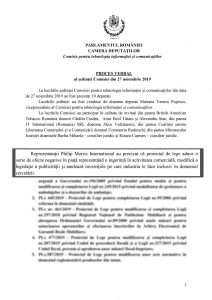‘Smoke-Free’ Cities and Islands — Sponsored by Philip Morris
Municipalities from the Czech Republic to Greece are signing partnership agreements with tobacco giant Philip Morris...
An art object. A fashion accessory. A medical treatment. A scientifically advanced gadget. And even, recently, a solution to COVID-19-induced lockdown boredom.
Philip Morris International, one of the world’s largest tobacco companies, is promoting its new star product, the IQOS, as everything except what it really is: a tobacco delivery device.
After decades of pressure from anti-smoking groups, the world’s major tobacco companies have been forced to admit that cigarettes cause cancer and other serious health conditions like heart disease and emphysema.
In many countries they have been hit with major restrictions — bans on advertising and promotion and strict limits on indoor smoking — stemming from the landmark Framework Convention on Tobacco Control (FCTC), an international treaty that aims to reduce the demand and supply of tobacco.
So 14 years on, the industry is also pivoting. PMI launched a global campaign last year called “Unsmoke Your World,” urging smokers to give up cigarettes. “Society expects us to act responsibly,” it proclaims on its website. “And we are doing just that by designing a smoke-free future.”
“Cigarette sales are declining everywhere in the world and we are going to accelerate this decline,” chief executive Andre Calantzopoulos told the BBC last year.
 Andre Calantzopoulos poses with the IQOS 3 at an event in Tokyo in 2018. Credit: Kim Kyung-Hoon/Reuters
Andre Calantzopoulos poses with the IQOS 3 at an event in Tokyo in 2018. Credit: Kim Kyung-Hoon/Reuters
But while PMI says it wants the world to be smoke-free, it has no intention of making it tobacco-free.
Instead, the company has banked its future on selling an entirely different way of getting aerosolized nicotine into its customers’ lungs: a proprietary system that uses electricity inside the IQOS device to heat short tobacco plugs to 350°C, substantially lower than the temperature of a cigarette, which burns at around 900°.
The company is betting big on IQOS, especially in markets where cigarette smoking is already on the decline or seen as déclassé, like many European countries and wealthier parts of Asia and Latin America.
At PMI’s most recent shareholder meeting on May 6, IQOS dominated the discussion and traditional cigarettes were barely mentioned, according to Michél Legendre of the non-profit organization Corporate Accountability, who was present at the meeting. IQOS products, which are more profitable per unit than cigarettes, generated US$5.6 billion in revenues for PMI last year, up from $700 million in 2016.
Philip Morris argues that when tobacco smolders rather than burning, it produces “on average 90-95 percent fewer” toxic substances, making it safer for smokers and those around them. The company has bombarded governments and the public with what it claims are “independent studies” that will prove that puffing an IQOS is healthier than smoking a cigarette.
But many of the studies on the health effects of IQOS were financed by PMI itself. There are only a few independent analyses on the safety of IQOS and how it compares to ordinary cigarettes in terms of the harm done to the body over time, according to Anna Gilmore, a professor at the University of Bath who studies the tobacco industry. They tell a different story.
After Philip Morris applied to sell the IQOS in the United States as a “modified-risk tobacco product,” the U.S. Food and Drug Administration rejected the claim that using the device cuts the risk of tobacco-related diseases. Although the IQOS may produce fewer levels of some toxins, the FDA said there is still no evidence it is healthier in the long term.
Another government analysis, in Italy, came to the same conclusion, but was never released. However, a copy of the report was exclusively obtained by OCCRP’s partner in Italy, RAI3’s Report investigative television program.
 How IQOS is marketed on social media around the world.
How IQOS is marketed on social media around the world.
As well as touting the health claims of IQOS, Philip Morris has been pushing a key advertising and sales strategy: separating the smoking device from the tobacco sticks that go inside it.
This sleight of hand has opened up a whole new world of advertising possibilities to the manufacturer that were shut down by the FCTC and related national anti-smoking laws.
The electronic device is still not taxed as a tobacco product in a number of countries, and it largely exists in a kind of regulatory limbo where it doesn’t need to be sold like one either.
This allows PMI to boost the public image of IQOS by creating sleekly branded shops that resemble Apple stores, even as the tobacco plugs, branded as “Heets” or “Marlboro Heets,” are still limited to shops licensed to sell tobacco.
In Italy, IQOS flagship shops are dubbed “embassies” and often feature art installations or architectural gimmicks. Rome’s IQOS Embassy has interiors made of recycled bottle caps and decorative elements shaped like nicotine molecules.
 The IQOS Embassy in Rome. Credit: Sartoria Comunicazione
The IQOS Embassy in Rome. Credit: Sartoria Comunicazione
“We use a lot of high-quality wood, ash and walnut in the interior,” a German executive for Philip Morris said of the new IQOS boutiques springing up on high streets in the country’s major cities.
The devices themselves are no less sleek. They resemble high-end pens, with matte chrome finishes and color options in a variety of jewel tones and limited-edition specials, like a recent Ukrainian version in aquamarine. (“One of the most trendy colors of the spring/summer 2020 season,” an advertorial in Cosmopolitan Ukraine buzzed.
IQOS street advertisements and billboards showing off the lines and curves of the electronic device have become common sights in countries like Romania and Japan that are FCTC signatories and have laws against tobacco advertising. Kiosks and stalls emblazoned with the IQOS logo have gone up in shopping malls, inside subway stations, and even on train carriages — which, emblazoned with the “Unsmoke” tagline, traveled thousands of kilometers around Romania earlier this year.
 A campaign for IQOS in Romania Credit: Andrei Ciurcanu
A campaign for IQOS in Romania Credit: Andrei Ciurcanu
And IQOS is picking up sponsorships that a tobacco company would normally be barred from: Formula 1 cars in Australia and Japan, a medical conference in Romania, and the largest indie music festival in Colombia, Estereo Picnic, where attendees can enjoy acts like Lana del Rey and the Arctic Monkeys — and buy Heets at a specially-branded stall called “Chill Vibes.”
Promotions giving users free trial runs of an IQOS device or samples of Heets have also taken place around the world. OCCRP and partners spotted these in Romania, Ukraine, Japan, Germany, and the UK, among other countries.
In Bucharest, an event space known as the “Qreator Hub” sponsors art and theater shows and sells limited-edition “Qollections” of designer silk scarves, handbags, and furniture for pets. When visitors are thirsty, they can grab a drink in the Qreator bar, which has an IQOS-branded receptacle for used Heets on every table.
In Italy, IQOS sponsored articles in a food magazine, “Cooked and Eaten,” and threw a launch party with recipes all cooked to precise temperatures, supposedly inspired by IQOS’s “HeatControl” technology. (Tobacco advertising in magazines or newspapers is illegal in Italy, and the Italian Competition Authority fined Philip Morris 500,000 euros for hidden advertising for this stunt).
At last year’s Milan Design Week, PMI even hired British sculptor Alex Chinneck to create an art installation inspired by the IQOS. He produced a giant molded zipper that created the illusion of a building shedding its facade to reveal an ethereal light within.
 A Sprinkle of Night and a Spoonful of Light,” a sculpture commissioned by Philip Morris, said to be inspired by IQOS. Credit: Claudia Beretta / Alamy Stock Photo)
A Sprinkle of Night and a Spoonful of Light,” a sculpture commissioned by Philip Morris, said to be inspired by IQOS. Credit: Claudia Beretta / Alamy Stock Photo)
“IQOS wanted to channel the notion of opening the future, so this zip is the idea of revealing, opening,” the artist told media.
But although the art and decor can be frivolous, the implications of Philip Morris’s “decoupling” strategy are dead serious. PMI has lobbied fiercely around the world to carve out a new regulatory regime for IQOS, with lower taxes than cigarettes and fewer restrictions on where it can be smoked.
Taylor Billings, a spokeswoman for Corporate Accountability, told OCCRP there was a major push by tobacco companies at the 2018 Conference of the Parties to the FCTC to create an entirely new classification for heated-tobacco products.
”And the whole point of that is just to create a separate policy track to set countries back 10 years from implementing the same regulations that currently apply to cigarettes,” she said. “So every lobbying push you see in the country is really just to carve out an unprecedented policy track so that they aren't taxed as highly, so they don't have marketing bans, so they can market them close to schools or... at kid-targeted events.”
 A Romanian Chamber of Deputies document showing how Philip Morris International lobbied against a law that would place more restrictions on heated-tobacco products like IQOS, saying it would “cancel out the investments that the industry is making, including in the field of research. Credit: OCCRP
A Romanian Chamber of Deputies document showing how Philip Morris International lobbied against a law that would place more restrictions on heated-tobacco products like IQOS, saying it would “cancel out the investments that the industry is making, including in the field of research. Credit: OCCRP
In Romania, Philip Morris lobbied against a new tobacco draft law that would tax and regulate heated tobacco products at the same rate as ordinary cigarettes (they are currently taxed at a sixth of the rate), and ban them from being promoted in public spaces or handed out as free samples.
Officials from Philip Morris Romania stormed the doors of the Senate and Chamber of Deputies during discussions on the law, and openly attended debates and special sessions in the Romanian parliament to argue against it, although this should be illegal under the terms of the FCTC. It also used two front groups to argue against imposing restrictions on heated-tobacco products.
In Ukraine, PMI has also been lobbying against a law that would tax heated-tobacco products in the same way as cigarettes. Between 2017 and 2019, it paid out nearly half a million dollars to an advocacy group called the Ukrainian Economic Freedoms Foundation whose founder, Maryan Zablotskyy, is now a member of parliament. (Zablotskyy did not respond to requests for comment.)
He tried to postpone the regulation of heated-tobacco products, introducing a draft law that would allow them to be smoked indoors as “smokeless tobacco.” Using this term, which echoes PMI’s marketing language, would allow them to be exempted from normal tobacco regulations.
IQOS even got its tobacco sticks certified by the Ukrainian State Service of Food Safety and Consumer Protection as “not for smoking,” meaning that they can be used indoors and in other areas where smoking is forbidden.
In Colombia, Philip Morris has provided financial incentives to politically influential groups to block changes that are unfavorable to the tobacco company, and high-level national government officials have had direct or close relationships with the industry. Colombian Vice Minister of Finance Juan Alberto Londoño was manager of government affairs for Philip Morris-Coltabaco between 2009 and 2010.
While HTPs are supposed to be treated like any other tobacco product in any country that has signed the WHO Framework Convention on Tobacco Control, tobacco companies are fighting hard to make sure that never happens.
For the “Blowing Unsmoke” project, OCCRP partnered with more than 14 journalists in 10 key countries — from Italy and Japan, where the IQOS debuted in 2014, to Romania and Colombia, where PMI is heavily promoting the device, to Macedonia, where the IQOS is just entering the market. Journalists collected exclusive documents and interviewed politicians, scientists, and former PMI employees over the course of several months.
Overall, their reporting paints a picture of a company taking advantage of legislative gray areas and relying on its own paid-for scientific literature to back its claims. By relentlessly marketing the IQOS as a fashionable, fun, and “clean” device that has nothing to do with smoking, PMI is pushing for a future in which “unsmoke” takes over the world of tobacco.
PMI’s Vice President of Strategic & Scientific Communication, Moira Gilchrist, denied that the company is flouting anti-tobacco regulations, arguing that campaign groups are targeting IQOS as part of a “disastrous prohibition-only crusade.”
“If people who smoke are denied accurate information — or worse yet, are misled about less harmful alternatives — the vast majority will simply continue to smoke cigarettes,” she said.
But it's not just ex-smokers who are trying IQOS.
In North Macedonia, although the device is not officially on sale yet, it already has a market of avid young users who have been buying it in neighboring Balkan countries. Some of them have eagerly embraced the message that using an IQOS is not really smoking.
Veronika, a 16-year-old living in the capital, Skopje, was just four years old when Macedonia enacted a smoking ban in 2008. She spent her childhood hearing that cigarettes were bad for you, and has no memory of throngs of smokers in bars and restaurants.
But last year, she started what she calls “sort of smoking.” Instead of cigarettes, she puffs an IQOS she got on a shopping trip to Serbia with friends.
She already has three devices and plans to buy a fourth — for aesthetic reasons. She wants a “chic” pink IQOS.
“It’s not really a cigarette, not a real one, from what I know about smoking,” she said.
Municipalities from the Czech Republic to Greece are signing partnership agreements with tobacco giant Philip Morris...
Philip Morris is using the coronavirus pandemic to market IQOS, its new device for consuming tobacco without smoke. The...
A campaign to get doctors to recommend IQOS, a hidden medical report, and a brigade of industry-backed scientists: Inside...
In July this year, senators in Rome received a letter from the local head of tobacco company Philip Morris, containing what...